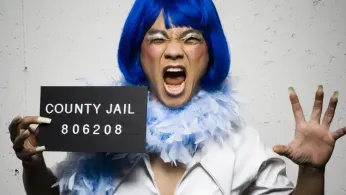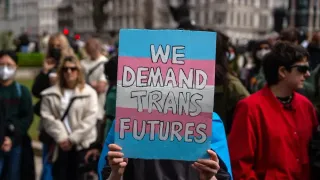
4 hours ago
Federal Appeals Court Allows Texas to Enforce Drag Show Ban
READ TIME: 3 MIN.
On November 6, 2025, the U.S. Court of Appeals for the Fifth Circuit reversed a lower court ruling and allowed Texas to enforce Senate Bill 12, a law passed in 2023 that restricts "sexually oriented performances" in public spaces where children may be present. This marks the first time the law goes into effect after having been blocked for over two years due to constitutional challenges .
Senate Bill 12 specifically targets performances deemed "sexually oriented" and "erotic," which includes some drag shows. The law imposes fines and potential jail time on performers and venues if such shows are performed in front of minors. The Fifth Circuit clarified that events such as The Woodlands Pride and Abilene Pride festivals did not meet the law's threshold for prohibition, meaning non-erotic drag performances at those venues remain legal .
The appeals court's decision was not unanimous. Judge James Dennis issued a partial dissent, arguing that the law's true intent was to target drag performances broadly, not just those of a sexual nature. He referenced legislative debates and statements from Texas lawmakers, suggesting that the statute risks suppressing protected artistic and expressive conduct under the First Amendment. Dennis further noted that Texas already prohibits obscene performances and the display of harmful material to minors under existing laws, questioning the necessity and breadth of SB 12 .
The majority opinion, however, maintained that the law is a constitutionally sound regulation focused on explicit sexual conduct in the presence of children. The court remanded the case to the district court for further analysis on one of five constitutional grounds initially raised, leaving open the possibility of continued legal scrutiny .
Notably, the district court’s injunction against prosecutors in Travis County and Bexar County remains in effect, as those officials did not appeal the ruling. The legal team representing drag performers and LGBTQ+ advocates is exploring further steps as the case proceeds .
Texas Attorney General Ken Paxton praised the decision, calling it a “major win” for families and a reaffirmation of the state's responsibility to shield children from sexually explicit content. In both press releases and social media statements, Paxton reiterated his commitment to defending the law on remand and protecting public decency and child safety .
LGBTQ+ rights groups have expressed strong concerns that the law could have a chilling effect on artistic expression and disproportionately target LGBTQ+ performers. Many advocates argue that drag is a form of art and self-expression, not inherently sexual, and fear that ambiguous legal standards could result in censorship or discrimination. Organizations such as the American Civil Liberties Union of Texas continue to challenge the law’s constitutionality and defend the rights of drag artists and transgender people to participate fully in public life .
The enforcement of SB 12 raises broader concerns about LGBTQ+ visibility, inclusion, and free speech in Texas and beyond. Drag shows have long served as safe spaces for gender expression, community-building, and celebration of diversity. Many in the LGBTQ+ community worry that laws like SB 12 could stigmatize drag culture and set precedents for further restrictions on LGBTQ+ events and gatherings.
As legal battles continue, advocates emphasize the importance of affirming inclusive language and protecting the rights of all LGBTQ+ identities, including transgender people and non-binary individuals, from discrimination and censorship. The outcome of ongoing litigation will have significant ramifications for LGBTQ+ performers, venues, and supporters across Texas and the United States.






